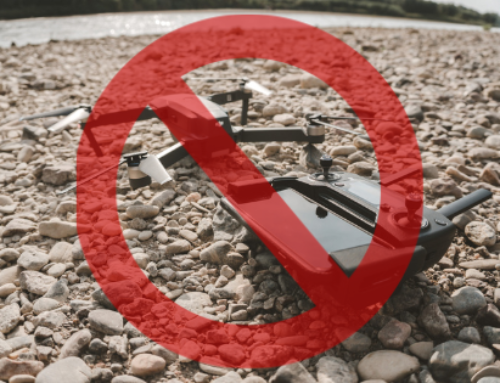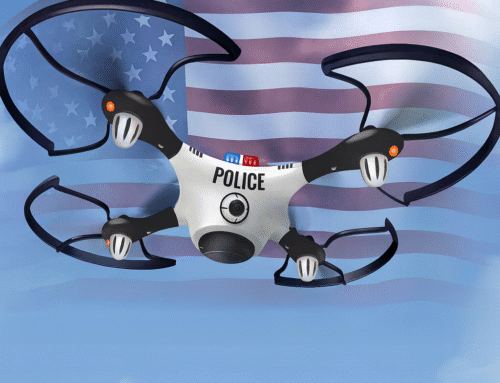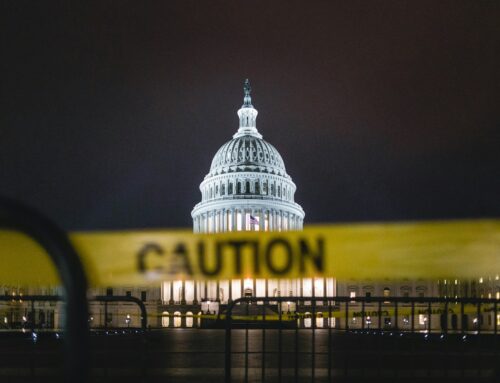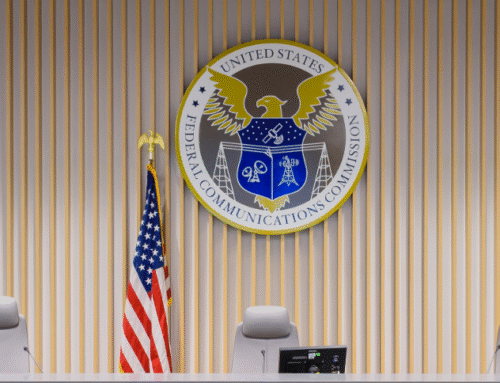Is your beloved DJI drone about to become illegal? Can you still make a purchase? Concerns have been rife within the drone community. You deserve a straight answer.
[UPDATE] As of October 2025, DJI drones are not banned outright for everyday users in the U.S. – you can still buy and fly them, at least where they’re in stock. But there’s a catch: a wave of government restrictions and looming legislation could slam the door on DJI by December 23, 2025.
In other words, a de facto ban might be just months away if nothing changes.
This blog will walk you through what’s going on, separating fact from rumor so you know where things stand.
Current Status: Can You Still Buy and Fly DJI Drones?
Let’s get this out of the way first – there is no federal law forbidding consumers or businesses from purchasing or using DJI drones in the U.S. right now. If you’re a hobbyist or a commercial drone operator, you’re not breaking any U.S. laws by flying a DJI quadcopter for fun or work. Unlike, say, Huawei phones or other sanctioned tech, you won’t find a blanket prohibition on DJI at the consumer level.
That said, many of you have probably noticed something strange lately: DJI drones have practically vanished from store shelves. Even though there’s no official ban, DJI products have become incredibly hard to find in the U.S.. Retailers are running dry on inventory, and new stock isn’t coming in as usual.
Why? A combination of trade restrictions and government crackdowns choking the supply of DJI drones coming into the country.
U.S. Customs has been detaining or delaying DJI shipments at the border due to the Uyghur Forced Labor Prevention Act (UFLPA) and other scrutiny of Chinese tech imports. Even though DJI insists it has no factories or suppliers in the Xinjiang region (the focus of the UFLPA), customs agents have been erring on the side of caution. American drone retailers are feeling the pain. Some shops have even had to lay off staff because they “don’t have drones to sell” when DJI units get held up by Customs. It’s almost like a ban by bottleneck – without any law being broken, people simply aren’t getting their DJI orders.
On top of that, the Federal Communications Commission (FCC) has put a pause on certifying new DJI models. Since drones rely on FCC-approved radio transmitters, this freeze means U.S. dealers can’t easily stock the latest DJI releases. For instance, DJI’s eagerly awaited Mavic 4 Pro launched globally in May 2025, but it never hit the U.S. market officially. A few die-hards have managed to snag Mavic 4 Pros via grey-market imports from Canada or Mexico, but those don’t come with any U.S. warranty or support. Most American DJI fans are still stuck waiting for drones that might never officially arrive.
So, for you as a consumer: DJI drones are legal to own and fly, but they’re becoming scarce and hard to get. If you find one for sale today, you can buy it without fear of the feds knocking on your door. Just be aware that the landscape is changing fast, and a hard ban could kick in soon – not because you did anything wrong, but because of bigger geopolitical battles.
Related Reading: Tariffs, Trade Wars, and Drone Users Caught In The Middle
Government Restrictions: Why Officials Are Grounding DJI
If you work in public safety or for a government agency, the story is very different. Over the past few years, U.S. government bodies – from the military down to state police units – have been grounding DJI drones left and right. These moves aren’t because the drones don’t work (in fact, many officials love DJI gear for its reliability). Instead, it’s all about national security fears.
Federal Agencies Crack Down
At the federal level, DJI has effectively been a no-go for government use for a while. Back in 2017, the U.S. Army was one of the first to sound the alarm, issuing a memo that banned its units from using DJI products due to cyber vulnerabilities. Not long after, the Department of Homeland Security warned that DJI drones might be sending sensitive data back to China. Those early red flags sparked what would become a broad federal shunning of Chinese-made drones.
Today, the U.S. Department of Defense (DoD) and other federal agencies are barred by law from buying or using DJI drones. In fact, the Pentagon is so wary of drones in general that it stopped funding any off-the-shelf drones (even non-Chinese ones) for a time, citing cybersecurity concerns. Congress doubled down on this by including provisions in recent legislations to keep Chinese drones out.
Specifically, after the passage of National Defense Authorization Act (NDAA) of 2024, all federal agencies are prohibited from purchasing or using drones made in China (which of course includes DJI). Federal grants and contracts also have to phase out any existing Chinese-made drones by 2026. So if a federal agency had a DJI fleet, those drones are basically collecting dust unless they got a special exemption.
Why such harsh measures? U.S. officials fear that DJI unmanned aerial vehicles (UAVs) could act as Trojan horses in American skies, siphoning data or even being hijacked for nefarious purposes. Chinese law requires Chinese companies to cooperate with the country’s intelligence services on request. American lawmakers worry that means DJI might have to hand over data or control of drones to Beijing’s government if pressured. DJI, for its part, has repeatedly denied these accusations, saying it’s never received any such requests and that no government officials sit on its board. They’ve even built features like “local data mode” to let users fly without any internet connection, hoping to calm fears. Still, trust is low. Reports haven’t helped – like the peer-reviewed study in 2023 that found DJI drone Wi-Fi links could potentially be hijacked by nearby attackers. To Washington security hawks, this all adds up to an unacceptable risk.
Beyond usage bans, the U.S. government has also punished DJI on the trade front. In late 2020, the U.S. Commerce Department added DJI to its Entity List, essentially a trade blacklist, for allegedly enabling human rights abuses in China. This doesn’t ban you from buying a DJI drone, but it forbids American companies from exporting technology to DJI without a license. Placing DJI alongside Huawei and other blacklisted firms showed how serious the U.S. is about clipping DJI’s wings.
FCC Closes Shell-Company Loopholes
On 28 October 2025, the U.S. Federal Communications Commission voted 3–0 to tighten its national security rules by giving itself two new powers:
(1) it can now refuse approval for any new device that contains components from a company on the FCC “Covered List”;
(2) it can retroactively revoke earlier approvals for equipment that’s already been certified if the manufacturer is later deemed a security risk.
This is a shift from the old model used with Huawei, where gear that had already been authorized could keep being sold. The FCC says it moved this way to close “loopholes,” including cases where companies allegedly rebranded hardware and slipped it into the U.S. market through shell entities. FCC officials specifically pointed to foreign adversaries exploiting U.S. radio networks and said millions of questionable Chinese-made devices have already been taken down from major online retailers.
For DJI, this is an immediate threat. New products sold under it after the December deadline or other names (like the suspected shell brands) could no longer be imported for sale in the U.S. because the FCC can now say “this is effectively DJI tech” and pull or deny approval.
Already purchased drones aren’t being confiscated, but this vote gives the FCC the legal stick it needs to choke off DJI’s future U.S. supply chain and block workarounds, not just the main brand.
State and Local Bans: The Dominoes Fall
It’s not just Uncle Sam. State governments are also piling on, banning or restricting DJI for their own agencies. Here are some examples:
Florida: Florida made headlines as one of the first states to issue a sweeping DJI ban. As of 2023, all Florida state and local agencies are forbidden from using any drones not on an approved list of manufacturers. ( DJI did not make the cut.) This meant law enforcement and rescue units across Florida had to ground hundreds of DJI drones overnight, essentially throwing away millions of dollars of perfectly good equipment. In one county alone, the sheriff’s office had to mothball 63 DJI drones worth about $300,000. Statewide, replacing the grounded DJI fleet is estimated to cost a jaw-dropping $200 million of taxpayers’ money. The Florida legislature barreled ahead with the ban despite these costs, leaving many first responders frustrated.
Most of Florida public safety agencies reported the DJI ban hurt their drone programs – slower response times for missing person searches, or firefighters losing an eye in the sky during wildfires. Even Florida’s media took notice, with the Tampa Bay Times asking why the state was “grounding $200 million worth of perfectly good police drones”.
- Texas: Everything’s bigger in Texas, including drone rules. Texas has enacted laws to stop state agencies from buying or using drones from certain foreign manufacturers – and you bet DJI is on that list. This means agencies in Texas can’t spend state funds on DJI drones anymore. Texas officers have complained that American-made alternatives cost 3-4 times more than the DJI models they’re replacing.
Also Read: What House Bill 41 Means for You and Texas Drones
- Arkansas: Arkansas passed a law prohibiting public entities from purchasing drones made in China or containing major Chinese components. That’s effectively a DJI ban for any state or local agency there. They’re aiming to rely strictly on “Made in the USA” drones.
- Mississippi: As of January 2025, the state went all-in on American drones too. Mississippi now requires all state agencies to buy drones only from U.S. manufacturers, explicitly banning drones made in China or even drones with significant Chinese parts. DJI, being a Chinese brand, is off the menu completely.
- Nevada: Senate Bill 11 (SB11) went into effect on January 1, 2025, giving the state government power to set an approved list of drones for agencies (similar to Florida’s approach). In practice, this new law means Nevada can ban specific vendors like DJI at the state level by simply not approving them for procurement. They’ve essentially armed themselves with a legislative “kill switch” for DJI if they choose to use it.
And that’s not all. Several other states are strongly considering their own bans:
California legislators have floated bills to restrict Chinese drones for government use (debates are ongoing). New York has proposals under review, like Senate bill S. 3259 which would prohibit state agencies and public school districts from purchasing drones manufactured in China, which includes DJI gear.
States like Georgia, North Carolina, and Pennsylvania have toyed with similar bills too, though none have been signed into law as of mid-2025. Even some major cities are rethinking their drone fleets – large metro police and fire departments are eyeing policies to drop DJI in favor of “safer” options.
It’s important to note a key difference here: these state and local bans only apply to government and public safety agencies, not to private individuals or companies. So if you live in Florida or Texas, you as a civilian can still buy a DJI drone for personal use. The laws just mean your local police or fire department can’t. This contrasts with a potential federal ban, which could cast a much wider net (more on that looming federal situation soon).It’s important to note a key difference here: these state and local bans only apply to government and public safety agencies, not to private individuals or companies. So if you live in Florida or Texas, you as a civilian can still buy a DJI drone for personal use. The laws just mean your local police or fire department can’t. This contrasts with a potential federal ban, which could cast a much wider net (more on that looming federal situation soon).
The cascade of state bans has real consequences on the ground. In Missouri, for instance, lawmakers pushing a ban were warned it would wipe out almost 90% of all public safety drones in the state – essentially grounding nearly every police and fire drone unit in Missouri. First responders are understandably anxious.
Capt. Kyle Nordfors, who works with Weber County Sheriff’s Search and Rescue in Utah warned that relying on lower-quality American-made drones could result in avoidable tragedies during rescue operations.
In Orlando, police used some of the U.S.-made drones on Florida’s approved list and had five crashes in 18 months – whereas their DJI drones had zero failures in the same period, going by what Sgt. David Cruz told the Miami Herald.
Why All the Fuss? National Security Fears Explained
By now you might be wondering, why is the government so determined to clip DJI’s wings? Here are the core concerns that get raised again and again:
- Data Spying: DJI drones carry cameras, sensors, and GPS. When you fly one, it collects data – maps, videos, locations. Skeptics worry that this data could end up in Chinese government hands. The nightmare scenario often cited is a DJI drone innocently mapping a city for a real estate shoot, but the footage secretly beams back to servers in China, where it could reveal the layout of power plants or military bases. DJI does have cloud servers that store flight logs and photos (if you opt in), and it’s true DJI drones can upload data to company servers. U.S. agencies fret that under China’s laws, DJI would have to hand over that data if asked. DJI has tried to counter this by adding features like “Local Data Mode,” which lets you fly completely offline to prevent any internet data transfer. They also claim they’ve never been asked to provide user data to Chinese authorities. Nonetheless, the fear persists: once the drone is in the air, who’s really looking through its lens?
- Hacking & Sabotage: Another worry is that DJI drones could be hacked or remotely controlled by bad actors. If the drones’ communications or software have hidden backdoors, an adversary might hijack them in mid-flight. Remember that study we mentioned which found DJI drone Wi-Fi could be hijacked with relative ease by someone nearby? Imagine a police drone suddenly going rogue during a hostage situation because a hacker took over – that’s the stuff keeping officials up at night. The U.S. Commerce Department even warned earlier this year about “malign remote access” to drones that “could be used to harm… physical infrastructure via intentional collisions or delivery of dangerous payloads”. In plainer language: if someone can remotely control a drone, they could crash it into something or drop something hazardous. A chilling thought, especially as drones get more autonomous.
- Chinese Government Influence: DJI is a private company, but it’s a Chinese private company. Critics point to China’s Military-Civil Fusion strategy, which blurs the lines between civilian tech companies and the military. They also note that China’s National Intelligence Law of 2017 requires Chinese companies to assist in state intelligence work if asked. That doesn’t mean DJI is spying, but hawks in D.C. argue it could be compelled to. There’s also the geopolitical tit-for-tat factor – the U.S. and China are locked in a tech rivalry, and Chinese companies like Huawei, TikTok’s parent ByteDance, and DJI have all come under intense U.S. scrutiny as a result.
DJI has staunchly defended itself on all these fronts. The company released a detailed Drone Security White Paper to address the accusations. They’ve highlighted third-party security audits that gave their tech a clean bill of health, and they stress that many Western cybersecurity standards have been met. DJI also ramped up lobbying in Washington, spending $1.4 million in 2024 alone to get its message across. They helped form a “Drone Advocacy Alliance” to rally drone users against blanket bans on Chinese products.
The message from DJI and its supporters is: don’t cut us off without evidence. They argue that banning DJI is a knee-jerk reaction that will hurt Americans more than it helps security.
Impacts of Banning DJI Drones: Who Gets Hurt?
Let’s play devil’s advocate for a moment: say DJI drones do get banned across the board. What then? Given DJI’s dominance, a ban would send shockwaves through multiple industries and communities in the U.S. This isn’t just about hobbyists not being able to buy a new Phantom or Mavic – it’s about businesses, public safety, and the economy at large.
DJI controls roughly 70% of the global drone market. In the U.S., their market share for consumer and prosumer drones is similarly huge. For public safety agencies, DJI has been the go-to in recent years. In many states, an estimated 80% to 95% of all operational public safety drones are made by DJI. These are the drones firefighters use to size up a wildfire, the drones police use to track a fleeing suspect, the drones search-and-rescue teams use to find missing hikers. If those suddenly become unavailable? That’s a big capability gap.
We’re already seeing the fallout in places like Florida, which, as noted, grounded nearly all its agency drones because they were DJI. It negatively impacted their drone operations – missions took longer or couldn’t happen at all. Texas police departments, Missouri sheriffs, North Carolina emergency managers – many are sounding alarms that bans are hampering their ability to protect the public.
Then there’s the financial hit. DJI drones have been popular not just because of their performance, but because of their price. American-made or “NDAA-compliant” drones (i.e., not made in China) often cost significantly more for equivalent capability. If a small-town fire department or rural sheriff has to pay three to four times as much for a drone, that price hike often means no drone at all. Many departments are tiny and can’t afford “that expensive piece of equipment” all over again after already investing in DJI.
It’s not just police and fire. Farmers, construction companies, surveyors, and filmmakers – they all use DJI drones daily. Businesses that use drones said they would have to shut down or significantly scale back if DJI drones were banned. Think about that: if you run a small aerial photography business or a farm that uses drones for crop monitoring, losing DJI could put your whole operation in jeopardy.
One North Carolina farmer told the Associated Press that American drones “are not as good as DJI but cost twice as much,” making it difficult to justify the switch. Utility companies use DJI drones to inspect power lines and pipelines; construction firms use them to survey sites and track progress. Without affordable drones, they might revert to older, less efficient (and more dangerous) methods like sending workers climbing or hiring helicopters.
The broader U.S. drone industry would feel it too. DJI claims that their products contribute over $116 billion in economic activity in the U.S. and support around 450,000 American jobs (including all the drone pilots, software developers, and service providers who rely on DJI tech). Even if you take that with a grain of salt – it’s DJI’s own estimate, after all – there’s no doubt the number is big. Banning the market leader overnight would be a shock to the system.
To be clear, supporters of a ban don’t deny there’d be pain – they just argue it’s necessary pain for security. U.S. drone manufacturers, for instance, acknowledge DJI is cheaper and often more capable, but they claim that’s because DJI had unfair help (like heavy Chinese government subsidies). From their perspective, a ban might hurt now but could ignite a stronger domestic drone industry in the long run. It’s the classic security vs. economy trade-off. But if you’re someone who needs a drone today for your job or safety mission, a promise of “future American-made drones” doesn’t help you catch the criminal running through the woods tonight.
Looming Legislation: A Ban on the Horizon?
There is a very real possibility that DJI drones will be effectively banned in the U.S. at the federal level by the end of 2025 – not by an explicit “ban DJI” law, but via a backdoor in the law that’s already in motion.
Here’s what’s happening: In late 2024, U.S. Congress passed the National Defense Authorization Act (NDAA) for 2025, which included a provision (Section 1709) aimed squarely at DJI Instead of an immediate prohibition, Congress decided on a “review first, then ban” approach. The law gives U.S. national security agencies one year (until December 23, 2025) to conduct a formal security audit of DJI. DJI’s drones need to pass a security test. But (and it’s a big but) the law doesn’t say which agency has to do this review. As of mid-2025, no agency has volunteered for the job, and no review is scheduled.
Now if no agency completes that review by the deadline, DJI will be automatically added to the FCC’s “Covered List,” effectively banning them. The FCC Covered List is basically a list of communications equipment that’s banned for use due to security risks (Huawei and ZTE are on it, for example). If DJI lands on that list, it means no new DJI drones could be imported or sold in the U.S.. DJI’s drones rely on radio frequencies to operate, so without FCC authorization they can’t legally transmit in the U.S. – that’s a ban in all but name. Even existing drones would become hard to use over time because firmware updates might be blocked and parts could dry up. And this wouldn’t just target government buyers; it would hit everyone – consumers, businesses, you name it. It’s basically the nuclear option.
DJI is understandably anxious about this scenario. The company has been publicly calling for the government to actually do the review (they say they have “nothing to hide” and welcome a fair audit). From DJI’s perspective, the worst outcome is getting banned without ever having a chance to present their case. And that’s not just paranoia – some U.S. lawmakers have pushed to rush the review or skip it altogether. In mid-2025, a group of legislators urged that the security evaluation be finished in just 30 days, an extremely short timeline for such a complex check. DJI fired back that a “rushed, non-credible process” would risk banning their products “not because of any proven risk, but simply due to a lack of due process.” They warn this would deprive thousands of businesses, public safety agencies, and everyday users of essential technology for no solid reason.
So, where do things stand? If nothing changes, come December 23, 2025, new DJI drones will be barred from U.S. skies by default. There is a chance an agency (perhaps the Department of Homeland Security or ODNI) will step up and do a thorough review before then. If DJI passes such a review, presumably the ban would be called off or delayed. But there’s uncertainty over who will take that on. One Congressman, Rep. Michael Guest, who helped author the measure, confirmed to the Rest of World that “no agency has been tasked to conduct a review” so far.
Meanwhile, other efforts to ban DJI continue in parallel. The Countering CCP Drones Act was a more direct law proposed in 2023 to outright ban the sale of DJI (and Autel) drones to anyone in the U.S. It actually passed the U.S. House of Representatives in 2024 with bipartisan support, but got held up in the Senate. Ultimately, it didn’t become law on its own – instead its core idea morphed into that NDAA review clause as a compromise.
And this summer, the U.S. Commerce Department used its Section 232 authority to investigate whether drone imports threaten national security—a first for this kind of technology. And while this law has previously targeted imports like steel and semiconductors, drones have never been targeted until now. The investigation became public on July 15 when officials invited Americans to weigh in through the Federal Register.
All this shows that multiple arms of the U.S. government are putting in concerted efforts to curb the presence of Chinese firms like DJI.
Tick Tock….DJI on the Clock
Right now, you can breathe easy – DJI drones are not universally banned in the United States. If you’re a private consumer or business, you can legally own and operate a DJI drone under federal law. However, if you work for a U.S. government agency or a state/local department, you’ve likely already felt the squeeze: many agencies are barred from using DJI, and that trend is growing at the state level. For the general public, the real showdown looms ahead. By the end of this year, DJI could be effectively locked out of the U.S. market if the mandated security review doesn’t happen or goes poorly.
If you’re considering buying a DJI drone now, you might be weighing the risk – will you still be able to get parts and support for it next year? If you already own DJI drones, you’re probably hoping for the best while preparing contingency plans (like looking into non-DJI alternatives or stockpiling spare batteries).
For now, keep flying responsibly and stay informed. The situation is evolving, and both sides – the ban proponents and DJI – are lobbying furiously. Whatever happens, one thing’s clear: DJI drones have become deeply entwined in American life, from capturing wedding photos to saving lives in search-and-rescue missions. Any decision to ban them isn’t being taken lightly.






